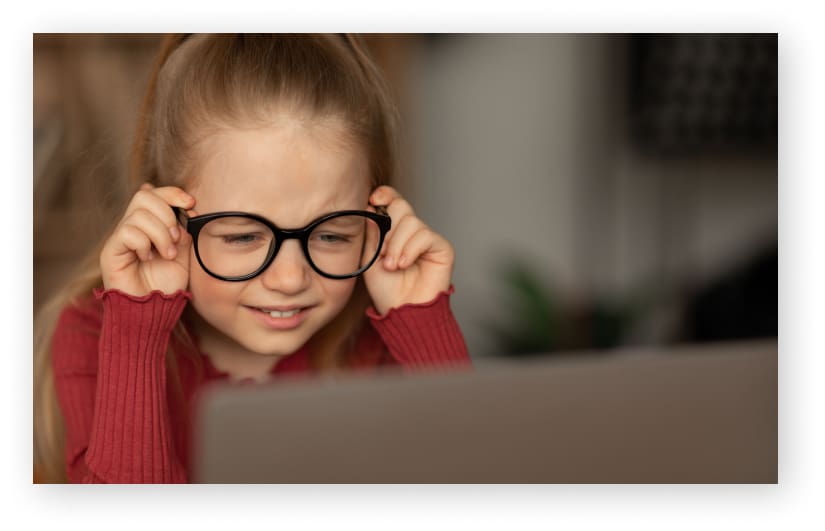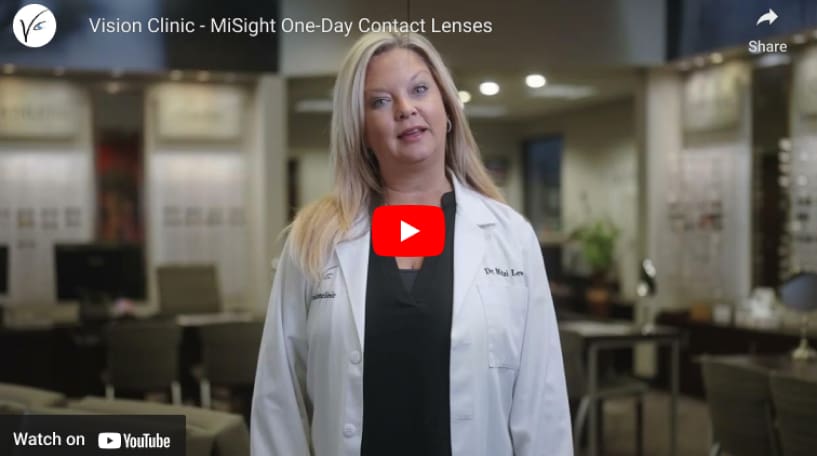Pediatric Eye Care
Support Your Child's Highest Potential
Vision isn't just about seeing clearly; it's the cornerstone of your child’s developmental journey. From the tiny milestones of grabbing toys to the significant leaps like reading, vision shapes every experience.
While there may be some obvious signs of visual disorders, many vision problems can only be detected by a qualified eye doctor during a comprehensive eye exam.

They Won't Know How to Tell You
It’s hard to notice vision problems in kids.
While squinting or struggling with books might be obvious, many symptoms of poor vision aren’t so clear and they can occasionally be misinterpreted:
- Reluctance towards activities like reading, coloring, or puzzles
- Appearing lost or slow in tasks
- Reporting exhaustion or recurring headaches
- A fleeting focus, or seemingly distracted demeanor
- Covering an eye or head tilting when concentrating on something
- Showing heightened sensitivity to lights
- Struggling with coordination
Common Eye Disorders in Children
The intricate dance between the shape of the eyeball, the coordination between the eyes and brain, and other medical conditions can influence vision. Thankfully, early detection can often lead to effective treatments:
- Strabismus: Often called "crossed eyes," this is when the eyes don’t align properly.
- Amblyopia: Known as the "lazy eye," it signifies poor vision in one eye and typically surfaces before the age of eight. Preterm babies or those with low birth weight may be more susceptible.
- Refractive Errors: These cause blurred vision due to the shape of the eyeball or lens and can be remedied with glasses or contacts.
There are three types of refractive errors:- Myopia (Nearsightedness): Clear close vision but poor from a distance.
- Hyperopia (Farsightedness): Struggles with close-up vision, but clarity with things far away.
- Astigmatism: Distorted vision at any range.


Eye Exam Schedule for Kids
Regular eye checks ensure your little one’s optimal growth and academic readiness. Don't confuse school screenings with comprehensive eye exams. A 20/20 vision is great, but your child could still have problems that only an eye doctor can find.
Here’s when we recommend getting your kid’s eyes checked:
- Post-birth before hospital discharge
- Around the 6-12 months
- At 3 years
- Every other year during school years
Never settle for less than perfect vision—especially for your kid. Schedule an appointment at Vision Clinic today!

Find A Location
Our five offices in Southwest Missouri provide easy access to exceptional care right in your own community.
Schedule Your Appointment
Click the button below to schedule your appointment online!






